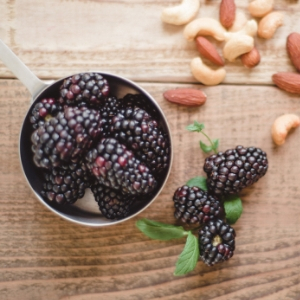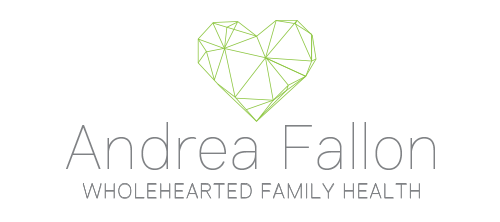Your guide to preparing for fourth trimester: Part 2
This article has been written by Aimee Revill, clinical nutritionist at Flow Holistic Nutrition. This is part 2 in the preparing for fourth-trimester series. You can read Part 1 here.
Hello there beautiful mama, mama-to-be, loving partner or friend and congratulations on the little one entering your lives. Everything is changing and flowing for you now and its oh so beautiful but can also be a challenge!
This post follows on from Part one- Planning for your Fourth Trimester so if you haven’t already, I would suggest reading part one first as it covers optimising your nutrition in pregnancy, preparing for birth and your first postnatal meal to maximise your energy for the fourth-trimester.
As a clinical nutritionist, I work with pregnant mamas right through their pregnancy, fourth-trimester and beyond to support them and their family during this transition period.
As a holistic nutritionist, I believe that lifestyle, spirituality and wellbeing play as much of a role in wellness as diet, and my approach to treatment reflects these beliefs.
Part 2 of this series will cover some suggestions on preparing for the early days of your fourth trimester.
1. Preparing Your Postnatal Care Kit
When you get home with your little one having a postnatal kit ready and waiting for you can be comforting.
Find yourself a beautiful big basket or gift box that can be your go-to for those days when you might be feeling down, depleted or just exhausted. It is great to have everything you might need in one easy-to-reach spot, for when you are in bed resting with your little love, or for quick access for your support person.
It’s about personalising your care kit to what makes you feel good! Some suggestions for inclusions:
Lactation tea: generally these contain galactagogues (herbs that stimulate breast milk production) such as fenugreek and fennel. My personal favourite is Weleda’s nursing tea. Sipping warm tea throughout the day also increases your hydration which is essential if you are breastfeeding.

Photo credit: Wellness Stock Shop
2L water bottle filled with natural spring water or filtered water, a glass and stainless steel straw with a bend: This is so if you have a sleeping babe on you, you can drink from the straw without having to move too much. You can also keep track of how much water you are drinking (aim for 3L of water per day).
Snacks: Your energy requirements during lactation are the highest they will be at any stage of your life. Therefore snacking is essential for your energy, your nutrient intake and your little one’s nutrient intake. Eat whenever you are hungry, even if you are not breastfeeding, your body has just gone through a marathon so replenish it with plenty of fresh whole foods. Include in your basket fresh fruit, a jar of raw balls or wholefood, refined sugar-free snack bars such as paleo bars, roasted chickpeas and raw nuts.
Massage oil: one that can be used for you and baby. I like Weleda calendula oil as it’s biodynamic, so no nasties, and very soothing due to the chamomile and calendula. Self-massage is a beautiful way to acknowledge, heal and celebrate everything your body has gifted you. Baby massage can also be very soothing for colicky babies and assist them to sleep.
A journal and pen: Motherhood is such a transformational journey with highs and lows. Journaling can be a really beneficial way to express these feelings, release and remember some of the beautiful early days.
Books and magazines: Preferably of the uplifting, high-vibe kind! For new mamas, I love Le Leche League’s Sweet Sleep and The first forty days: Essential art of nourishing the new mother. The Natural Parent magazine is great for some lighter reading.
2. Calling in Your Village
We are all surrounded by people who want to help us, even if we are isolated from our family and friends.
Although it can be hard to ask for help due to the nature of our society today, there is a whole network of people out there who are trying to re-establish the postnatal village.
This sense of community around the new mother used to be commonplace in so many other cultures, however, you can create this culture with your friends and family; organise a potluck at your house a few weeks before your baby arrives and have an open discussion about how each person can help you.
Ask everyone to write down what they can do for you so once your little one is here. Some people might offer to clean your house, others might be able to cook a few meals, while some might just be a shoulder to cry on or hold your baby while you take a long shower and wash your hair. It might also be worth mentioning that there may be times when you need help but not necessarily company, politely letting visitors know to keep things short and sweet.
3. Prepare your postnatal pantry
While you are pregnant stock up your pantry with easy to prepare staples and snacks.
My suggestions would be;
- oats and chia seeds for breakfasts and smoothies
- raw nuts to snack on or turn into nut butter
- brown rice to make as a side-dish
- dried red lentils and chickpeas that, when prepared properly, are very easy to digest and nourishing
- ghee (clarified butter) is a wonderful fat for cooking and adding to snacks
- roots including ginger, turmeric, carrots, parsnips and turnips as they all store well and can be made into soups
- dried mushrooms such as shitake to be added to broths, soups and stews for immune support and flavour
- miso soup paste to easily create a base for your meals, and finally;
- dried herbs and spices such as fennel, fenugreek and nettle to make teas for increasing milk supply and soothing mum’s tummy and in turn, babe’s tummy too.

I would also suggest that every time you cook dinner during your last few weeks of pregnancy you cook a bulk batch, ensuring you have at least 2 portions to add to your freezer for those early days when cooking can seem a challenge.
If you would like further information on how you can support yourself, your little babe and your family with nutritional medicine please visit Aimee’s website.
 Aimee is a clinical nutritionist with a BHSc in Nutritional Medicine. She is also a mother, a yogi and passionate foodie. Aimee enjoys helping mamas, their little babes and the whole family during the ‘fourth trimester,’ a special time that is equally exciting as it is daunting. Aimee can create a personalised nutrition treatment plan for you with invaluable resources, as well as ongoing support and coaching.
Aimee is a clinical nutritionist with a BHSc in Nutritional Medicine. She is also a mother, a yogi and passionate foodie. Aimee enjoys helping mamas, their little babes and the whole family during the ‘fourth trimester,’ a special time that is equally exciting as it is daunting. Aimee can create a personalised nutrition treatment plan for you with invaluable resources, as well as ongoing support and coaching.
You can visit the Flow Holistic Nutrition website here.
This post is sponsored by Flow Holistic Nutrition.
[activecampaign form=3]



